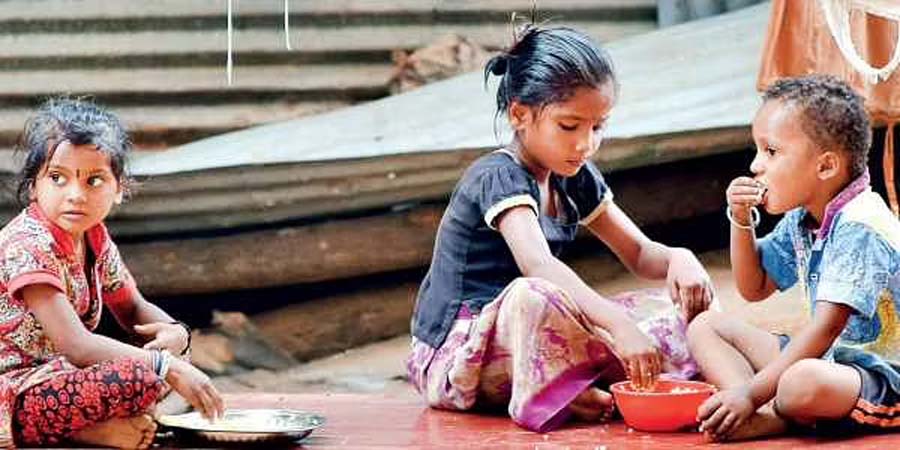 Representation Image
Representation Image
Over a third of Karnataka’s under-five age children are stunted or too short for their age, while two-thirds of this age group are anaemic, said the National Family Health Survey-5 (NFHS-5) on May 3, 2022.
The 2019-20 report claims improved statistics compared to NFHS-4 yet shows worrying figures about child development in the state. Particularly, it stated that 35 percent of children under 5 years are stunted, 20 percent are wasted or too thin for their weight and 33 percent are underweight. According to the report, this indicates undernourishment for some time with underweight data considering chronic and acute undernutrition.
“Even during the first six months of life when almost all babies are breastfed, 20 percent of children are stunted, 27 percent are wasted, and 25 percent are underweight,” said the report.
Compared to NFHS-4, while children’s nutritional status in Karnataka has slightly improved. The percentage of children who are stunted decreased marginally from 36 percent to 35 percent in the four years between NFHS-4 and NFHS-5. The percentage of children who are wasted has decreased from 26 percent to 20 percent and children who are underweight decreased from 35 to 33 percent since NFHS-4. However, continuing high levels of undernutrition are still a major problem in Karnataka.
Meanwhile, 66 percent of children aged 6-59 months (i.e less than 5-years-old) are anaemic. This includes 28 percent infants who are mildly anaemic, 35 percent children who are moderately anaemic, and three percent children who have severe anaemia. However, the overall prevalence of anaemia in children increased from 61 percent in NFHS-4.
In terms of gender, 65 percent girls were anaemic whereas 67 percent boys were anaemic in the latest report. Children of anaemic mothers were much more likely to be anaemic.
“Almost two-thirds (65 percent) of children in Karnataka are anaemic even if their mother has 12 or more years of schooling,” said the report.
Nutritional difficulties among women
As many as 48 percent women in Karnataka had anaemia, including 22 percent with mild anaemia, 23 percent with moderate anaemia, and 3 percent with severe anaemia.
“The condition is particularly high among rural women and scheduled caste women, but at least two-fifths of women in every group have anaemia. Anaemia among women has slightly increased by 3 percentage points since NFHS-4,” said the report.
Meanwhile, only 20 percent of men in Karnataka were anaemic. Men between ages 15-19 years and men with no schooling are particularly likely to be anaemic.
Overall, 47 percent women and 45 percent men were either too thin or overweight or obese. More men and women are overweight or obese than thin, which is similar to the pattern observed in NFHS-4. As many as 17 percent women and 14 percent men were too thin. 30 percent women and 31 percent men were overweight or obese.
Gynaecologist and trainer in child protection at Bengaluru’s Acura Hospital Dr S. Saldanha told Deccan Herald that the data indicated long-term malnutrition. Covid-induced increased prices of nutritious foods like pulses, oils, and plant and non-vegetarian foods, further accentuated chronic malnutrition, said the article.
Similarly, public health activist Dr Sylvia Karpagam told DH that chronic under-nutrition is likely to have worsened in the state after the pandemic and the lockdown. The main causes are the loss of livelihood, displacement, shutting down of public transport, access to basic healthcare and breakdown of social security schemes like ICDS and mid-day meals.
She called for better decisions on food and nutrition based on data from NFHS, CNNS and similar studies.
Related:
Why does the Karnataka government not want children to eat eggs at mid day meals?
GOI rejects Global Health Index after India’s worst ranking ever
SC slaps fine on states for no reply on community kitchen schemes
India ranks first in child deaths under 5 years of age: UNICEF report
Karnataka gov’t delays malnutrition alleviation report, HC warns of contempt proceedings